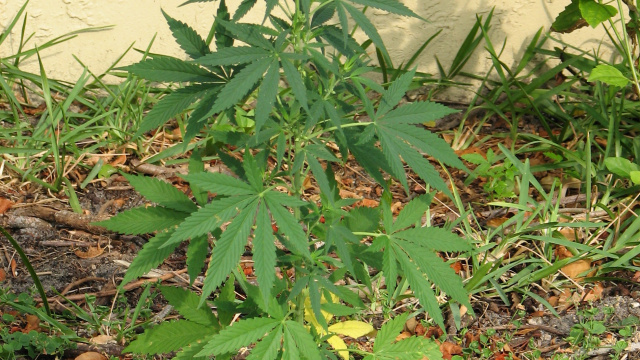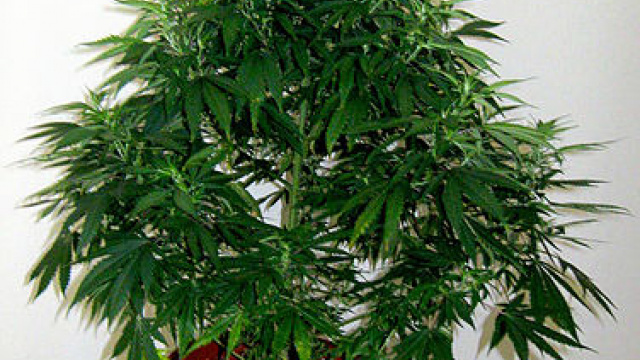 A vote for an item on the Nov. 6 ballot to legalize medical use of marijuana in Arkansas would enable cancer patients and other people suffering from chronic conditions to get relief when other drugs aren’t diminishing their suffering, backers of the measure argue.
A vote for an item on the Nov. 6 ballot to legalize medical use of marijuana in Arkansas would enable cancer patients and other people suffering from chronic conditions to get relief when other drugs aren’t diminishing their suffering, backers of the measure argue.
But opponents, ranging from police organizations to the conservative Arkansas Family Council lobbying group, argue the drug would fall into the hands of people with no legitimate need it and are campaigning against the measure.
The group Arkansans for Compassionate Care organized the signature drive and fought a legal battle that followed to get the measure on the ballot.
Cancer survivors and family members of people with painful medical conditions have helped the organization get its message out that marijuana used medicinally can be of great benefit to people with pain, nausea and other chronic ailments.
Jerry Cox, director of the Arkansas Family Council, led a late drive to urge people to vote against the measure, arguing that the intent of the ballot item is to make marijuana as widely available as possible.
If approved, the measure would set a framework to allow dispensaries to provide up to 2.5 ounces of marijuana to patients who got a doctor’s approval to use the drug. The proposal would make it legal for people to grow their own medical marijuana if they live more than five miles from a dispensary.
The proposal didn’t draw organized opposition until October, when Cox started rallying groups to publicly condemn the measure.
The state Chamber of Commerce, the Arkansas Sheriffs Association, the Arkansas Association of Chiefs of Police and the Arkansas Pharmacists Association have all registered their opposition, as did state Drug Director Fran Flener.
Gov. Mike Beebe and Attorney General Dustin McDaniel each said they would vote against the item but said they wouldn’t campaign against it.
Arkansans for Compassionate Care has raised more than $289,000, with most of the money coming from the Washington, D.C.-based Marijuana Policy Project.
Dr. David Smith, a palliative care specialist with Baptist Health Medical Center in Little Rock, noted that a lot of the money supporting the measure has come from outside the state.
About a dozen doctors appeared with Smith at a news conference last week where they urged voters to oppose the measure, saying backers are citing “bad science” in arguing for the drug’s effectiveness.
“So-called medical marijuana is not a scientifically valid way to relieve pain or suffering,” Smith said.
Gary Fults, president of Arkansans for Compassionate Care, disagreed.
“We can come up with just as many reports saying its good science as they can saying its bad science,” Fults said.
Fults urged asks that voters strive to find independent information about medical uses of marijuana.
“You’ve just got to go out and get the information yourself, educate yourself about the issue. We recommend that everybody read the initiative … instead of listening to all the rhetoric that’s out there, ours and theirs,” Fults said.
The 8,000-word initiative goes into great detail about how marijuana would be dispensed and stipulates that users with a doctor’s clearance couldn’t be prosecuted under state law. Marijuana would remain illegal under federal law.
Fults said the group has worked to enlist physicians to publicly support their cause but he said doctors don’t want their names associated with the initiative because they could lose their hospital privileges.
“We’re working on that right now. We’re trying to find someone who is independent of the hospitals that could speak out for us,” Fults said.
During its petition drive and subsequent campaign, the organization brought forth numerous people who said they were able to get through chemotherapy and endure other conditions only with the help of marijuana.
The ballot item has gotten the attention of Arkansas voters.
The Arkansas Poll, conducted by the University of Arkansas, surveyed 800 people and has a margin of error of plus or minus 4 percentage points.
The poll showed that 44 percent of voters favored the measure and 52 percent were opposed with 5 percent voicing no opinion or refusing to answer when the poll was taken Oct. 9-14.
Source: Associated Press (Wire)
Author: Chuck Bartels, Associated Press
Published: October 29, 2012
Copyright: 2012 The Associated Press



Leave a Reply